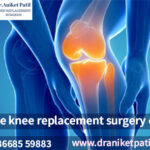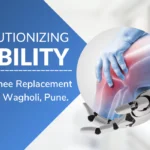Exploring Non-Surgical Knee Replacement Alternatives: A Comprehensive Guide
Introduction
Knee pain is a pervasive issue that affects people of all ages, limiting mobility and diminishing the quality of life. While knee replacement surgery remains a standard treatment for severe cases, it is not the only option. This article delves deep into the realm of Non-Surgical Knee Replacement Alternatives, exploring a multitude of therapies and approaches that offer relief and improved function without resorting to surgery.
Understanding Knee Pain
Before delving into alternative treatments, it’s crucial to understand the various causes of knee pain and the conditions that may lead to the consideration of knee replacement.
Osteoarthritis
Osteoarthritis is a degenerative joint disease and a leading cause of knee pain. It involves the breakdown of joint cartilage, leading to inflammation, pain, and reduced mobility.
Rheumatoid Arthritis
Rheumatoid arthritis is an autoimmune disease that primarily affects the joints. In the knee, it can cause chronic inflammation, pain, and joint damage.
Ligament Injuries
Injuries to the knee ligaments, such as the anterior cruciate ligament (ACL) or posterior cruciate ligament (PCL), can result in pain, instability, and a need for treatment.
Meniscus Tears
Tears in the meniscus, the cartilage that cushions the knee joint, can lead to pain, swelling, and limited range of motion.
Approaches for Non-Surgical Knee Replacement Alternatives
Physical Therapy
Physical therapy plays a pivotal role in managing knee pain. Skilled therapists develop tailored exercise programs to strengthen muscles, enhance flexibility, and alleviate pain.
Medications
Medications like nonsteroidal anti-inflammatory drugs (NSAIDs) can provide pain relief by reducing inflammation. Analgesics and corticosteroid injections can also be effective.
Hyaluronic Acid Injections
Hyaluronic acid injections, or viscosupplementation, aim to improve joint function and reduce pain, particularly in cases of osteoarthritis.
Platelet-Rich Plasma (PRP) Therapy
PRP therapy involves using a patient’s own blood to create a concentrated solution of platelets, growth factors, and proteins, which is then injected into the knee joint to stimulate natural healing processes.
Acupuncture
Acupuncture, an ancient Chinese healing technique, involves inserting thin needles into specific points on the body. It can help reduce pain and improve circulation, offering relief for some individuals.
Emerging and Regenerative Therapies
Regenerative Medicine
Regenerative medicine includes innovative approaches like PRP therapy and stem cell therapy. These treatments promote tissue repair and regeneration, potentially delaying or eliminating the need for surgery.
Prolotherapy
Prolotherapy involves injecting a solution, often containing dextrose, into damaged ligaments and tendons. This stimulates natural healing processes and strengthens weakened tissues.
Weight Management
Maintaining a healthy weight is essential for reducing stress on the knee joints. A balanced diet and regular exercise can help shed excess pounds, mitigating knee pain.
Nutritional Supplements
Glucosamine and chondroitin sulfate are popular nutritional supplements that may support joint health and alleviate pain for some individuals.
Comprehensive Rehabilitation
Physical Medicine and Rehabilitation
Physical medicine and rehabilitation specialists focus on optimizing knee function through non-surgical means. Therapeutic exercises, manual therapy, and joint mobilization can enhance mobility and reduce discomfort.
Custom Orthotics and Bracing
Orthotic devices and knee braces provide support, distribute weight evenly, and reduce strain on the knee joint, offering stability and relief.
Holistic Approaches
Mind-Body Techniques
Mindfulness-based stress reduction and relaxation techniques can complement other treatments by reducing pain perception and improving overall well-being.
Dietary and Lifestyle Changes
Certain dietary modifications and lifestyle adjustments can help manage knee pain, including anti-inflammatory diets and avoiding high-impact activities.
Patient Stories
To inspire hope and provide real-world perspectives, this section includes personal success stories of individuals who have found relief through alternative treatments.
Conclusion
Knee pain is a complex and individualized experience, and knee replacement surgery in pune is not always the first or best option. This comprehensive guide has explored a multitude of alternative treatments, ranging from physical therapy and medications to emerging regenerative therapies, holistic approaches, and inspiring patient stories. When considering knee pain treatment, it’s essential to consult with healthcare professionals to determine the most suitable approach for your specific condition. These alternatives offer hope for those seeking pain relief, improved function, and a better quality of life without the necessity of surgical intervention.

 Previous Post
Previous Post Next Post
Next Post